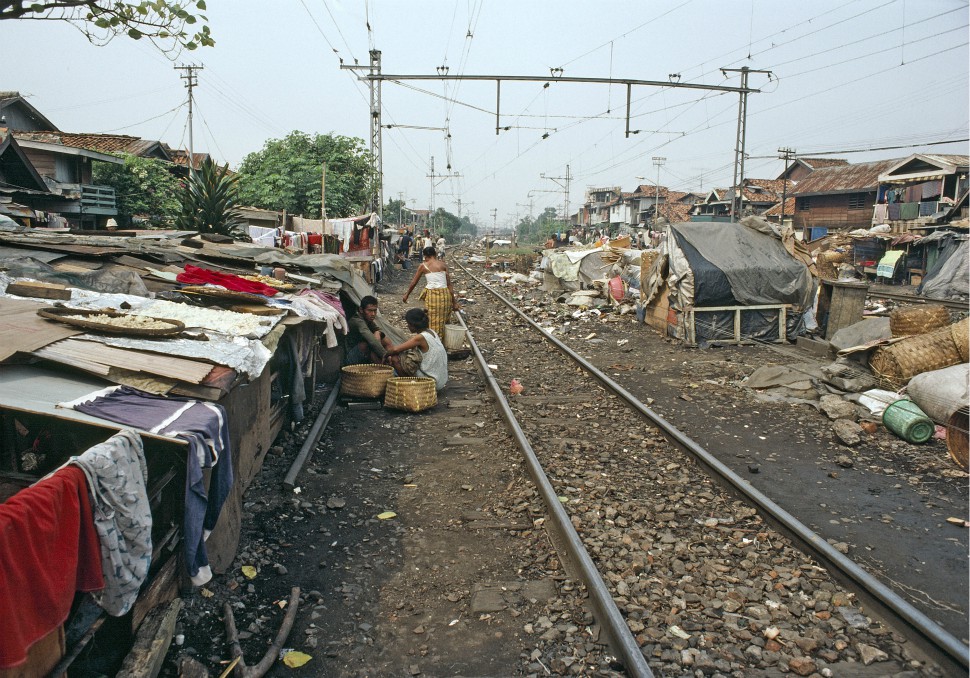The Universal Declaration of Human Rights affirms that housing is a human right. Despite this, there is no accurate, up to date census of global homelessness. The current rough estimate is that 100 million people are experiencing homelessness globally.
Sustainable Development Goals 1 (No Poverty), 2 (Zero Hunger), 8 (Decent Work and Economic Growth), and 11 (Sustainable Cities and Communities) are all directly tied to the issues of sustainable housing and global homelessness, yet there is no agreed upon international definition of homelessness.
The lack of an internationally agreed upon definition of homelessness has fed into the failure of the ability to accurately assess the scope of the issue.

Homeless people with makeshift shacks beside the railroad track in Jakarta in 1986. (UN Photo/John Isaac)
The 58th Session of the Commission on Social Development (CSocD) to be held at the United Nations in New York, Feb 10-19, 2020 with its theme “Affordable housing and social protection systems for all to address homelessness,” will attempt to address some of these issues.
The UN NGO Congregations of St. Joseph has been involved with this effort in several ways. Jacqueline Witwicki, our intern for this year, has been supporting this cause through her contributions to the Working Group to End Homelessness, among other things.
As an NGO, the Congregations of St Joseph support the 58th Civil Society Declaration which will be finalized during the Civil Society Forum which is held during the Commission Meeting. Among other things, this declaration points to the importance of universally adopting a single definition of homelessness and endorses that of the Nairobi Expert Group on Ending Homelessness: “Homelessness is a condition in which a person or household lacks habitable space with security of tenure, rights and ability to enjoy social relations, that is a manifestation of extreme poverty, growing inequalities and the failure to implement earlier decisions on social protection systems and human rights.” It also calls for standard, agreed on metrics for data analysis and collection in relation to homelessness that specifically focus on gender and other intersectional demographics.
Outside of preparing for CSocD, the Congregations of St. Joseph has participated in a variety of events to learn more about the issue of global homelessness. One of these events, The World’s Biggest Sleep Out, saw over 60,000 people slept outside for one night in over 50 cities to raise funds and awareness.
To learn more about Ending Homelessness through The Sustainable Development Goals, click here.

